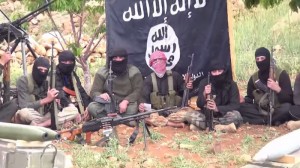As the situation in Iraq has escalated, the UN announced yesterday that the situation is a “Level 3 Emergency”, which will trigger additional goods, funds and assets to respond to the needs of the displaced. Earlier today, clashes between Iraqi troops and ISIS west of Baghdad resulted in the death of at least four children. The UN Security Council also said that it was backing a newly-nominated premier-designate in hopes that they can swiftly form an “inclusive government” to neutralize the insurgent threat, the worst crisis in Iraq since US troops withdrew back in 2011.
Since they swept into Iraq in early June, ISIS has driven hundreds of thousands away from their homes, and have been clashing with Kurds in the north. They have targeted the region’s religious and ethnic minorities, such as the Christians and Yezidis, who have fled their advance to take refuge in the remote desert Sinjar mountain range. The American and Iraqi military have dropped food and water supplies, and in recent days Kurds have battled to open a corridor to the mountain, which has allowed some 45,000 to escape. However, roughly 4,500 people remain on top of the mountain, nearly half of whom are herders who lived in the area before the invasion and don’t plan on evacuating.
The UN said that they would be providing additional support to Iraqi refugees, including 400,000 who have fled since June into Kurdish territory. A total of 1.5 million people have been displaced by fighting since ISIS captured Mosul, Iraq’s second-largest city, and swept through other parts of the country. Fighting erupted earlier today in the ISIS-held city of Fallujah, just 40 miles to the west of Baghdad. At least four children have already been killed in the battle, as well as one woman and 10 militants. In recent days, the US has been carrying out airstrikes against ISIS fighters, helping to fend back their advance on Kurdish regions. Iraq’s central government in Baghdad, meanwhile, has been plagued by political turmoil after the President nominated a Shiite politician to form the next government. The Prime Minister, Nori al-Maliki, said that he refuses to relinquish power until a federal court rules on what he called a “constitutional violation” by the President.
